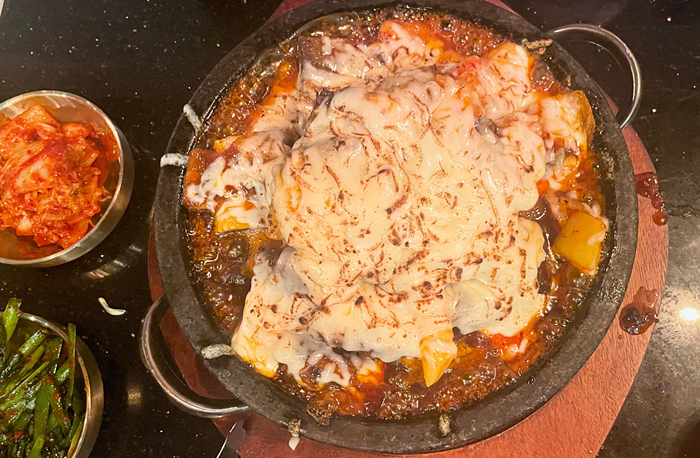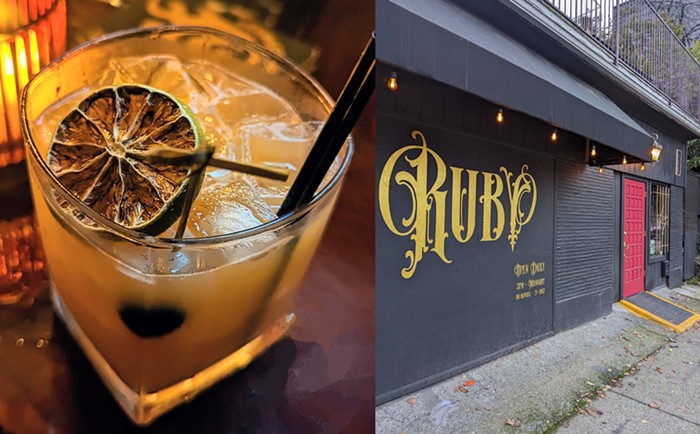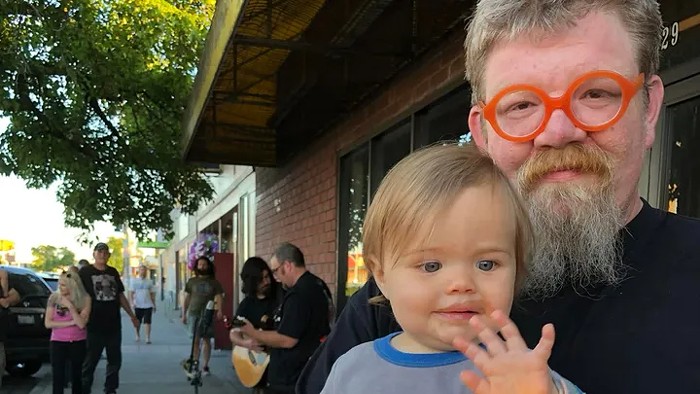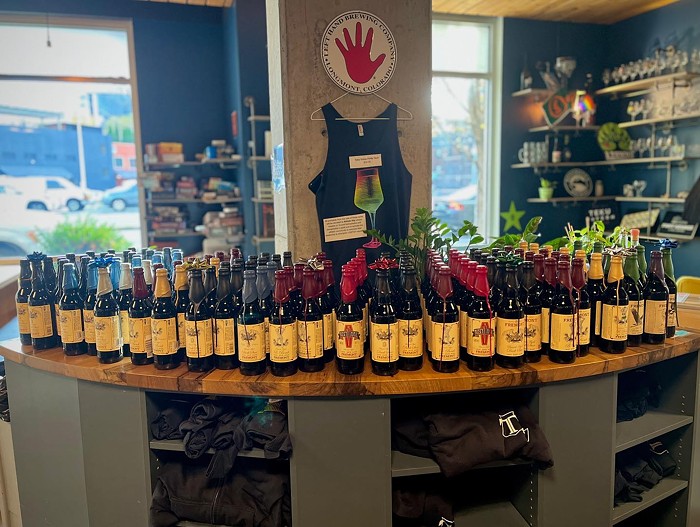While we are in the midst of what has to be the longest construction boom in the city's history (it seems to have no end in sight), it's worth stopping for a moment to think about what a city is. A city is built by humans, obviously. But it does not end with that. A city is not a passive thing or some neutral machine for living. It acts on us and it changes our manners, modes of thinking, and behavior. Our built environment makes us more urban in much the same way that the beaver-made dam made its maker, the beaver, more aquatic.
We know what the water-related features of a beaver are, but not so much the urban-related features of a big-city human. And with good reason. These are harder to define because we are still in the infancy of our urbanization. We are still in the process of becoming the ideal animal of a human-built environment. Beaver-made dams are much, much older than cities.
What does the city want? It wants you to get rid of your stove, your cupboards, your pantry, your racks of pots and pans, your drawers crammed with utensils. The city believes you can make do with just a sink, a few wineglasses and cups, something to make coffee with, and a mini-fridge to keep white wine and perishable snacks. What the city is always saying to us is that the home should be for sleeping and fucking and little else.
The ideal life in the city is one that is spent mostly in public. A person like me has no need for a kitchen because the city has so many restaurants, no need for a lawn because there are parks everywhere, no need for a car because there are buses, trains, and sidewalks, and no need for a living room because there are cafes full of couches to visit. If prostitution were legal and rationally managed (like restaurants are), and its ridiculous stigma removed, then even sex would leave the home. The less private space you have, the more social you are—and the more social you are, the more you are a human. We are the most social macro-animal on earth.
There is a very practical reason for abandoning the kitchen. The fact is that most of us can't cook. The dishes we prepare look and taste bad. We burn things all of the time. We overcook this, undercook that. Few of us possess the kind of genius that can see the passage a raw steak must make to a state of perfection. But many people do have this gift, and they work at and sometimes own restaurants. These people should feed us (the mass of bad cooks) all of the time. One of the core functions of a great city is to provide its inhabitants access to people who love and know food deeply.
Rural areas suffer because no one knows where the good cooks are. The gifted are scattered across the countryside. The information of their whereabouts is lost in the vast and desolate spaces between people and villages. This miserable situation in the rural world is comparable to, say, rabbits. When one among these furry creatures has an exceptional skill, it benefits only that one—it is locked in its body. The only way it can share its gift is through a long and slow process of Darwinian distribution. Something like this is true of the rural areas. Great cooks cook for themselves and those who are very close to them.
Indeed, during a two-week road trip I took through Montana, Idaho, and Wyoming three years ago, I failed to find anything whose taste was not dominated by salt and cooking oil. This kind of diet is called "home cooking," and rural people are mighty proud of it. They eat the stuff with the satisfaction that a cow chews grass. Only once in my life have I encountered in the rural areas something worthy of the city on my plate, and this happened in 1995! A close friend of a close friend in Quebec—she had her own farm—surprised me with a really delicious hamburger, and I was so desperate to eat something that tasted like loved food that I ate this hamburger with Cookie Monster frenzy. The farmer was amazed and seemed to have no idea she was a good cook. Her neighbors, who lived far away, probably had no idea either. Such is life in the country.
The city concentrates the best cooks. We know who and where they are. In Seattle, the number of full-service restaurants, more than 2,000 (according to the report "Behind the Kitchen Door: The Highs and Lows of Seattle's Booming Restaurant Economy"), is growing. And the more it grows, the more it concentrates this kind of talent and diminishes the need for a kitchen. Why eat at home when you can go to Salare in Ravenna for a bowl of the most delicate tripe? Or to Soi on Capitol Hill for a plate of the perfectly sliced and seasoned house-made sausage that's prepared in the style of Northern Thailand? Then there is the bowl of deep-green greens at Fat's Chicken and Waffles in the Central District. Or the superb arugula salad at Cafe Bengodi on Beacon Hill. Or the fascinating blend of a Vietnamese sandwich and Middle Eastern hero at Mount Baker Halal Deli. These are all new places. And many more are opening and expanding the galaxy of plates prepared by people who know what they are doing.
This expansion of excellent plates also has another urban virtue. It increases the number of strangers. When there are only a few good restaurants, one tends to run into the same people all of the time. But when there are many, as is the case with Seattle, a city with one of the highest per capita full-service restaurants in the United States, we find ourselves often eating among people we don't know. We are a strange body to them, and their body is a stranger to us.
Why is this a virtue? Because the hero of the city, the real subject of the street, the person the urban resident most adores, is the stranger. Now, country people hate this figure. They regard him or her with suspicion and will not hide their astonishment or anxiety or animosity when a stranger walks into a diner. But us city types love the stranger because we fully depend on them. They cook for us the best meals on earth, they drive our buses and trains, they repair our infrastructure, they remove our waste, and they even fuck us from time to time.
Indeed, in the ideal city, we should fuck only strangers, and rarely at home, but somewhere in public. The urban person frowns upon long-term relationships. Marriages are for farmers. The city in a state of perfection is about strangers encountering strangers in parks, on the light rail, in one of its many restaurants.




















